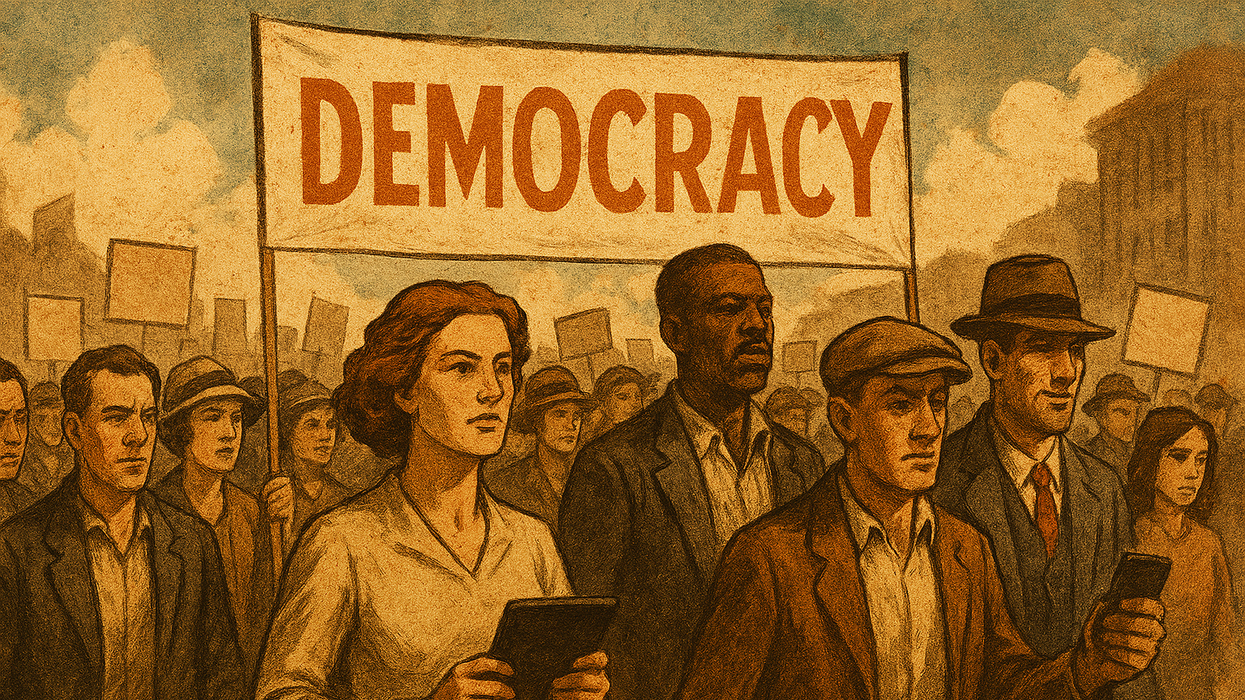I’ve appreciated continuing to speak with a diverse array of individuals through this Fulcrum series, all exploring the future of the pro-democracy movement. Each conversation brings a useful and distinct perspective on how to push forward in this period of flux. Recent interviews have surfaced ideas ranging from Rahmin Sarabi’s ideas to fundamentally transform democracy through more participatory measures, to Lilia’s Dashevsky’s plea to tailor messages more effectively to specific audiences, to Ben Bain’s attempt to reconcile the tension between improving state capacity and adhering to democratic principles. It’s clear that people are thinking deeply about how to meet this moment—but there’s no single roadmap ahead.
Still, I can’t shake the gnawing feeling that those who care about democracy—broadly defined as the pro-democracy movement—are largely doing things the same way. We organize the same kinds of big conferences with predictable panels and limited audience engagement. We produce the same reports (some with genuinely insightful material!) and hope they get read and used. We convene the same conversations and meetings. I say this as someone who attends and facilitates many of them—and who writes and reads a lot of reports myself.
I worry we spend too much time on Zoom bemoaning the state of the country, and not enough time talking to people who don’t already live and breathe democracy.
More than anything, I worry that—ironically, for a sector that exists to resist a movement built on returning to the past (pushing back against Make America Great Again)—the pro-democracy community often yearns for a past that will never return. We hope for a time when trust in institutions was relatively high, media outlets were few, and basic decorum defined public life. A time when conferences set agendas, and reports drove action.
Too often, it feels like what many in the pro-democracy community really want—especially where the sector overlaps with the Democratic Party—is a return to the optimism people felt when Barack Obama was elected in 2008.
But that world is gone. In an era where Donald Trump has been elected twice, artificial intelligence is rapidly advancing, and social media dominates how people consume information, the past is no guide. If we want a functional democracy, we need to define a new vision for the future—not hope for a return to the old normal.
Some in the field are already engaged in futures work, which is critical in a moment when short-term crises dominate. But I also recognize how hard it is to talk about the long-term future when the National Guard is patrolling cities, democratic guardrails are being dismantled, and fealty to a single leader drives political success. In such a context, envisioning a better democracy can feel utopian, even out of touch.
Like so many of these reflections, I don’t have neat answers. But I do believe the toolbox has to change. Maybe it’s time to stop inviting the same people to the same conferences. Maybe it’s time to stop lamenting the state of politics with the same colleagues. Maybe it’s time to experiment, to take risks, and to think more creatively—both now and for the future.
I say all this with humility. Much of my own time is spent on Zoom with people who care deeply about democracy, just as I do. I try to reach across ideological divides, and I hope my work makes a difference—but I’m willing to change my approach if it doesn’t.
I’d love to hear from you all- on whether this series has been helpful, and how you all are thinking about next steps for the pro-democracy community. Which brings me back to the question in this title: are we actually doing anything differently? If the honest answer is no, then we shouldn’t expect the future of democracy to look any different either. The challenge isn’t only to defend democracy—it’s to reimagine it. And that requires us, collectively, to step outside of the familiar patterns we’ve grown comfortable in.
I’m curious if we’re actually doing that right now.
Scott Warren is a fellow at the SNF Agora Institute at Johns Hopkins University. He is co-leading a trans-partisan effort to protect the basic parameters, rules, and institutions of the American republic. He is the co-founder of Generation Citizen, a national civics education organization.




















Trump & Hegseth gave Mark Kelly a huge 2028 gift